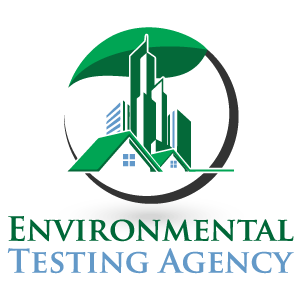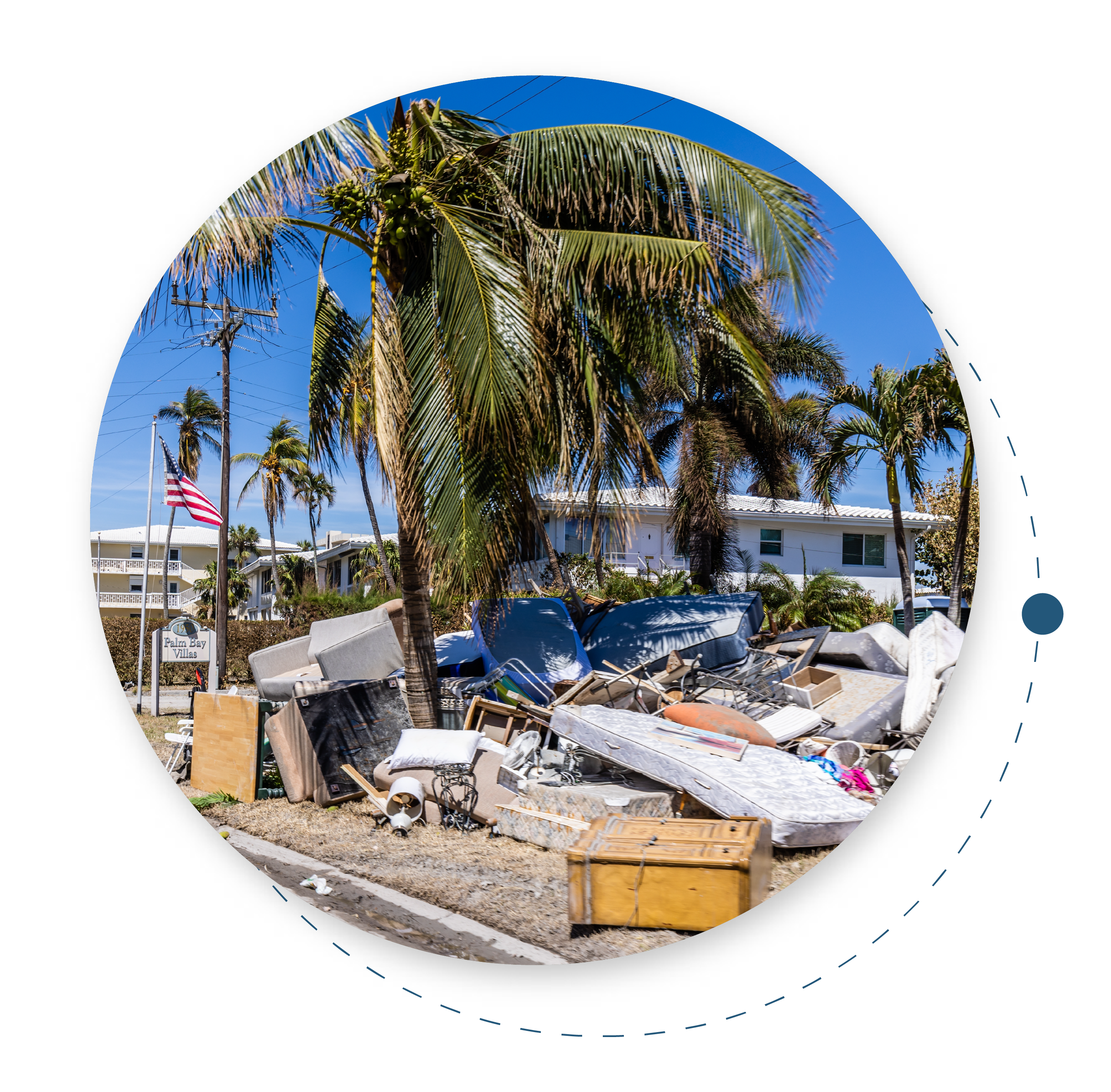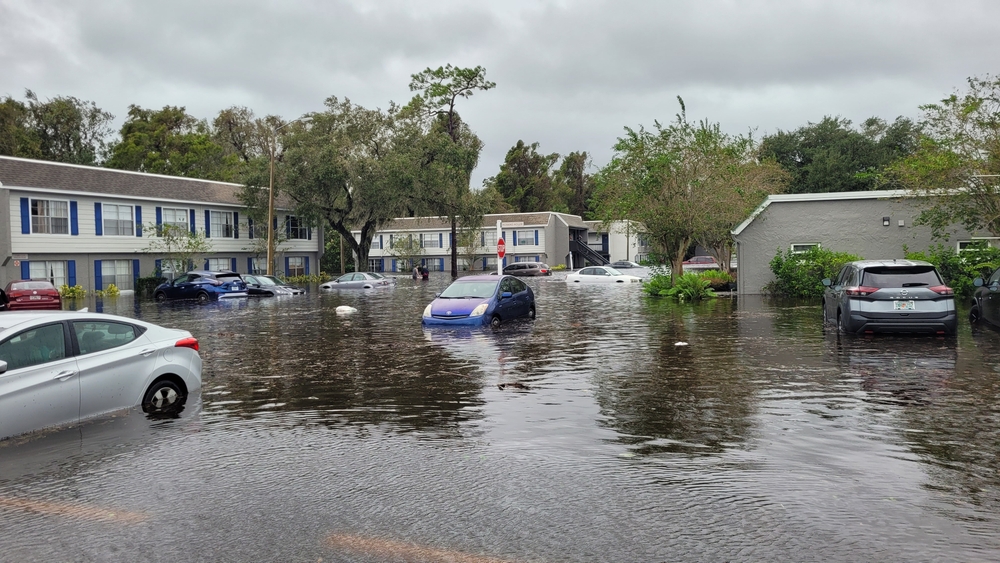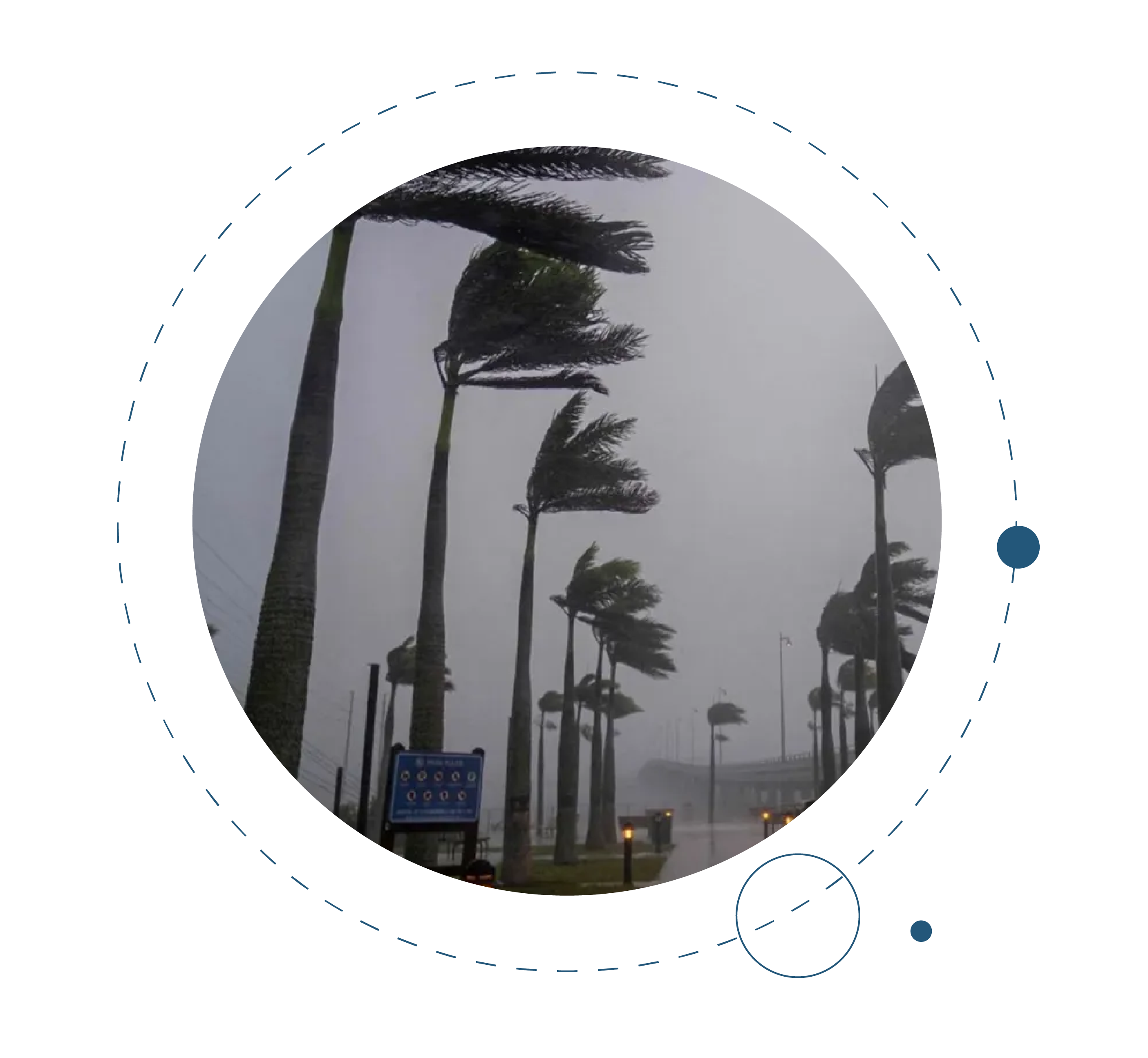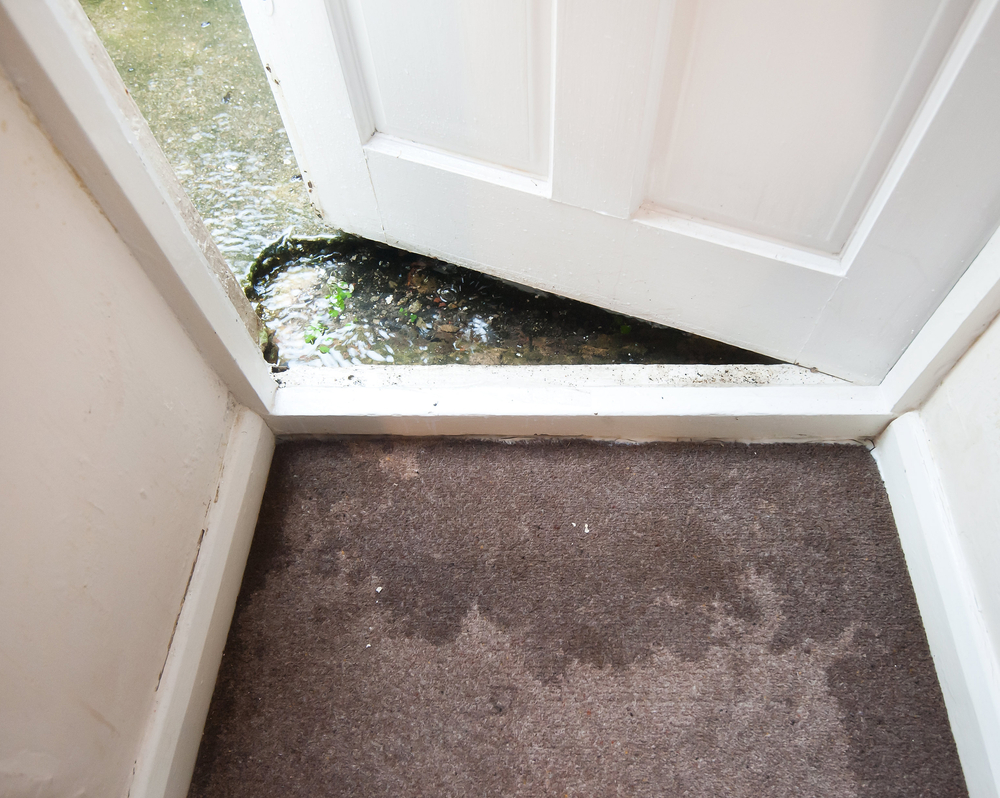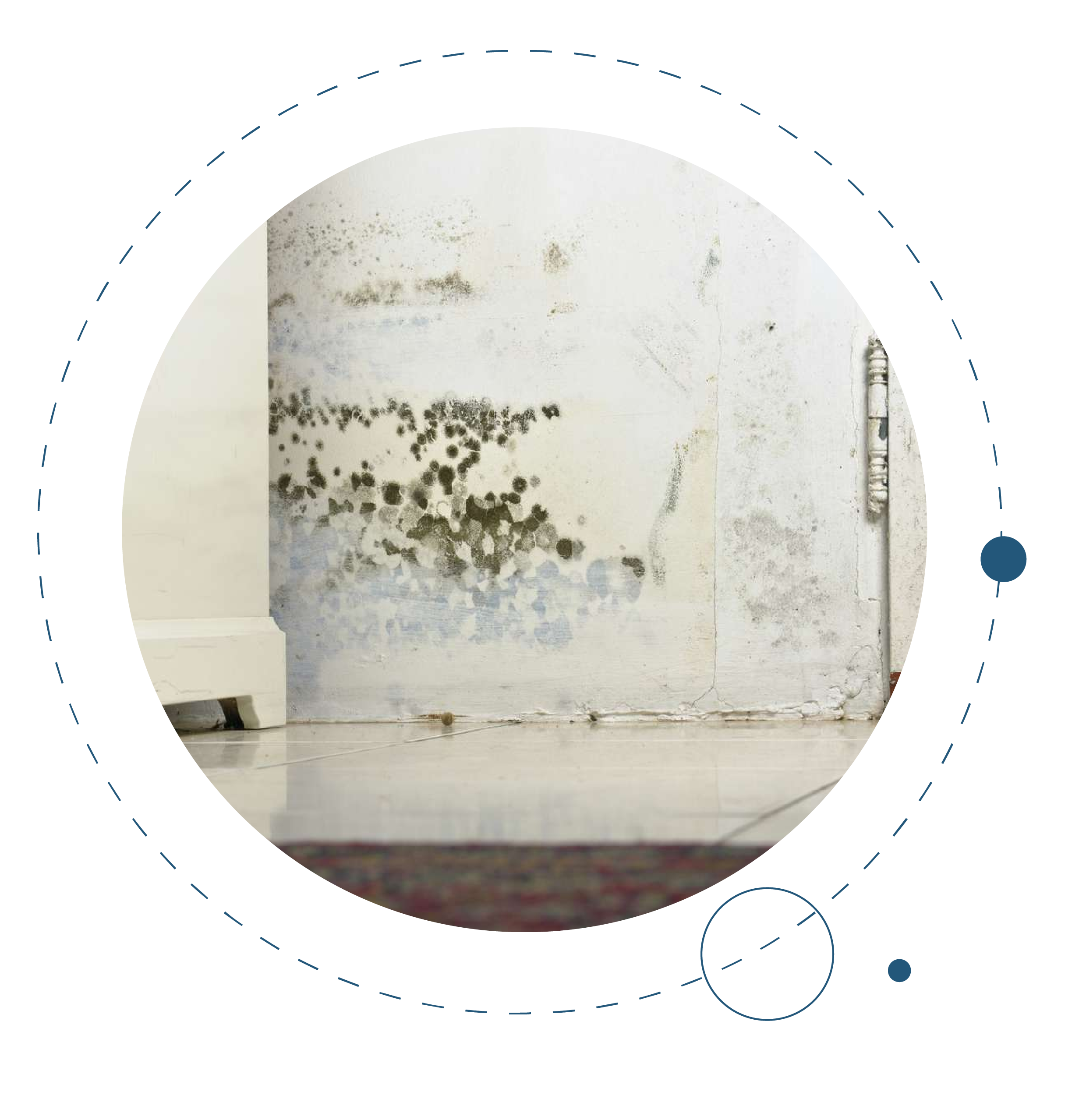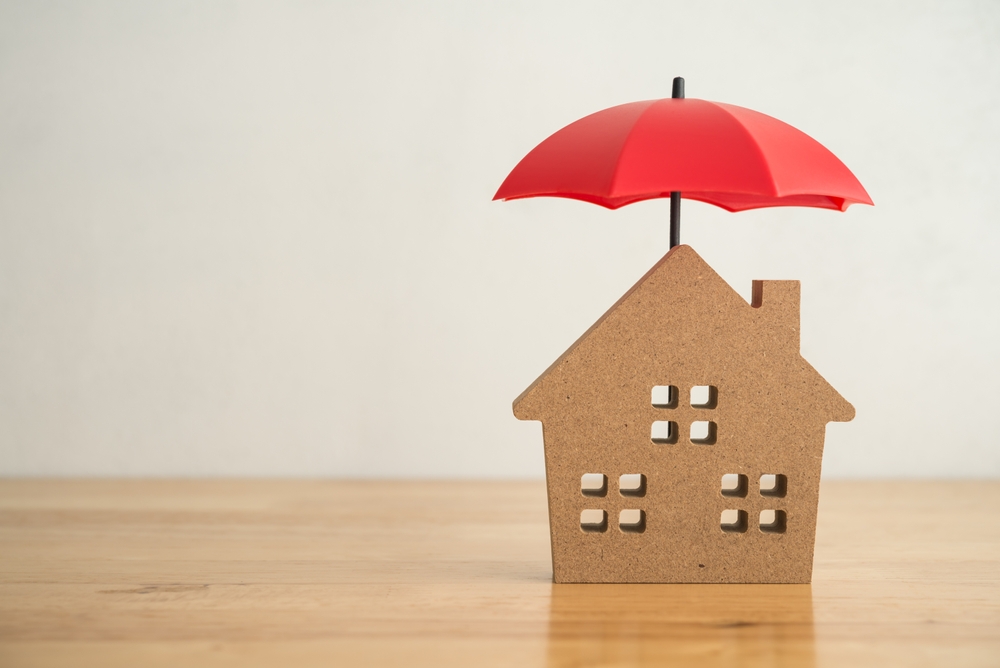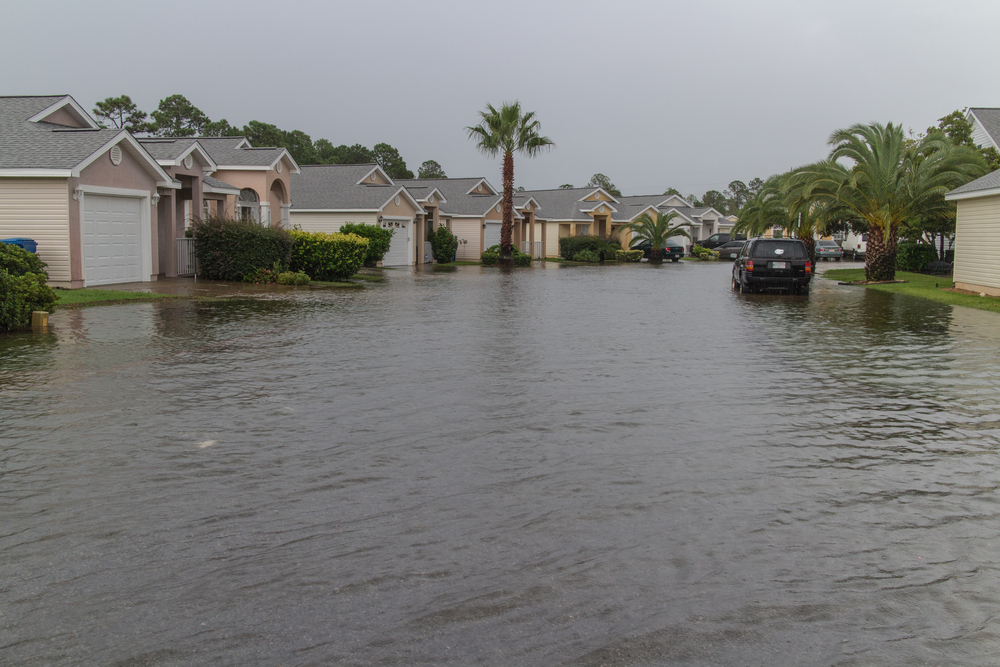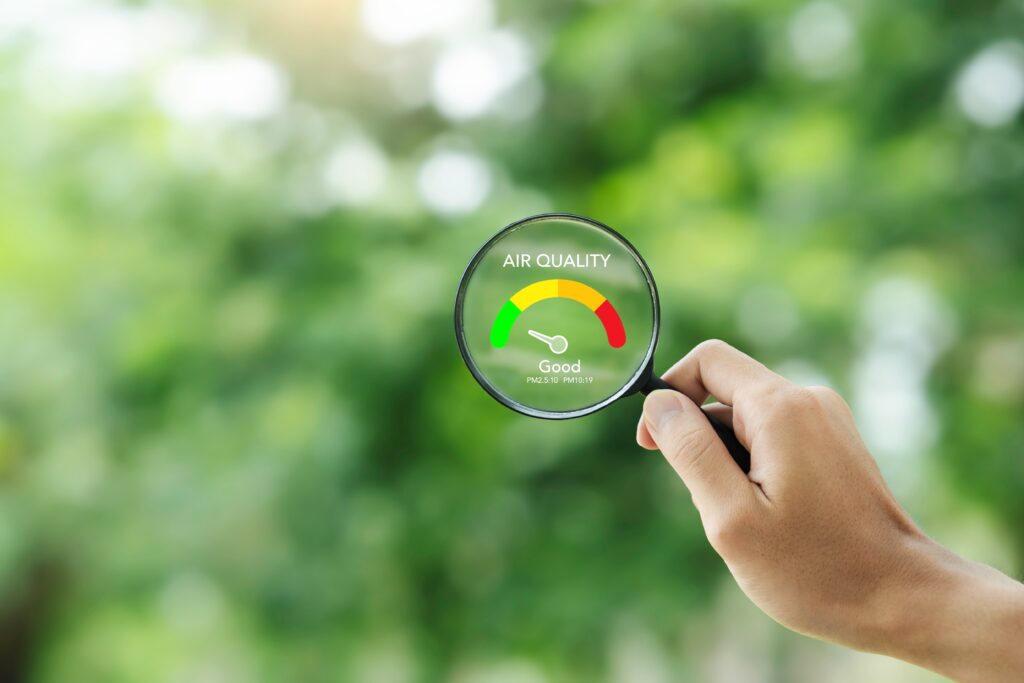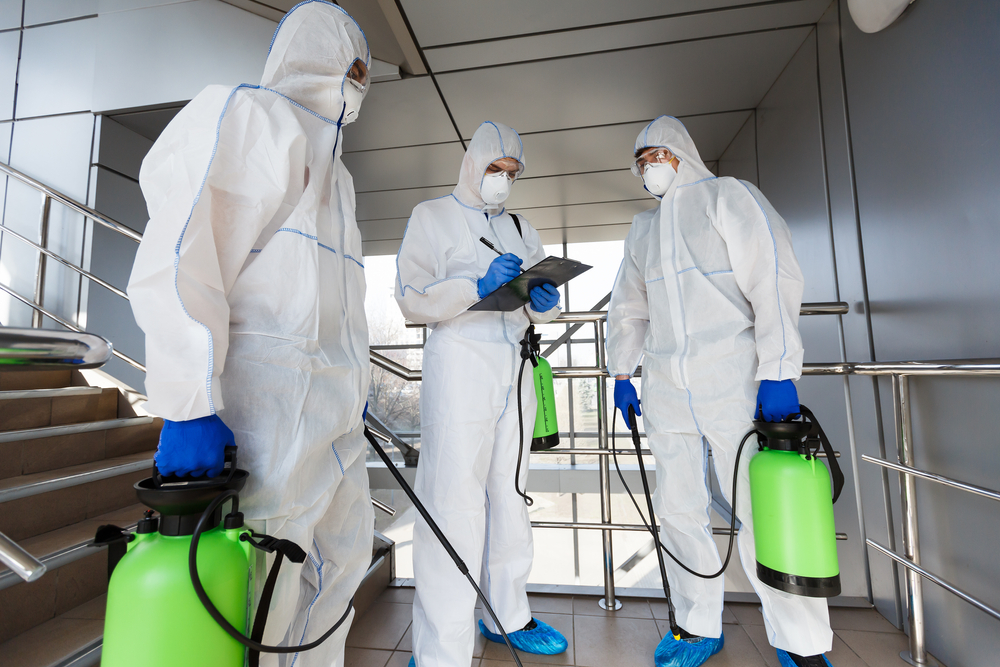Hurricane Season Home Safety: Flood and Mold
All about Hurricane Season in Florida
and how we are certified to help you!
Florida’s hurricane season
Florida’s stormy weather can be unpredictable and potentially devastating, affecting residents and tourists alike. Whether you’re planning a vacation or a Floridian through and through, being informed and prepared is crucial. As a true “Sunshine State” business, we prepare a comprehensive and informative guide to understanding the dynamics of hurricane season home safety and what steps you should take against floods and mold.
Hurricane Season Home Safety
Hurricane season is a trying time for homeowners, particularly those in flood-prone areas. With the advent of powerful storms, the likelihood of flooding and mold infestation in homes increases significantly. This comprehensive guide aims to help you secure your home against flood and mold during the hurricane season, using advice backed by official emergency organizations.
Understanding the Risks
It’s crucial to comprehend the risks involved. Flooding can compromise the structural integrity of your home, destroy valuables, and create electrical hazards. Conversely, mold is destructive and poses severe health risks, including respiratory problems.
Hurricanes and Mold: A recipe for disaster
The relationship between hurricane season and mold issues is rooted in the environmental conditions that hurricanes bring. The combination of excessive moisture, limited ventilation, potential structural damage, and power outages creates an ideal environment for mold growth.
Preparing for Flooding
- Elevate Electrical Systems
Raise electrical switches, sockets, circuit breakers, and wiring at least a foot above the potential flood level in your area. This ensures that your electrical systems remain operational and safe during minor flooding.
- Install Backflow Valves
Consider installing interior or exterior backflow valves for sewer systems to prevent a sewage backup during flooding.
- Secure Outdoor Items
Anchor outdoor equipment and furniture to prevent them from being carried away by floodwaters, which could damage your home’s structure.
Mold Prevention
- Maintain Good Ventilation
Adequate ventilation can significantly reduce the chances of mold growth. Ensure that your home, especially basements and crawl spaces, is well-ventilated.
- Use Mold-Resistant Materials
For homes in flood-prone areas, using mold-resistant drywall and paint can make a difference in preventing mold growth.
- Regular Maintenance Checks
Perform routine checks for mold in areas like the basement, attic, and other spaces prone to dampness.
Emergency Kits and Plans
- Prepare an Emergency Kit
An emergency kit with essentials such as water, food, first aid supplies, and important documents should be readily accessible.
- Develop an Evacuation Plan
Knowing where to go and how to get there can save lives. Ensure every family member knows the evacuation plan and meeting spots.
Talk to an environmental testing Agency.
Hurricane Safety Measures
Always refer to your local and federal emergency services for the most updated information. Stay safe! Remember, preparation is the first line of defense against the natural disasters of hurricane season.
After The Storm: Mold and Mold Testing Assessment
After the storm has passed and it’s safe to go outside, assess your property for water damage and mold growth. If you notice any issues, contact professionals like ETA Mold and Mold Testing Testing Agency for a thorough assessment and mitigation plans.
After a storm, Mold can
become another disaster
We are here
to help you!
It is crucial to address the potential causes of indoor air quality problems, especially after a big storm season. If left untreated, air quality issues can have a detrimental impact on our health. Infants, children, and the elderly are particularly susceptible to poor air quality. In Florida, mold is the number one cause of respiratory problems in children. We want to help you. Allow us to be your breath of fresh air. Get your air quality tested TODAY with ETA! Call for an appointment: mold testing and moisture assessment with a detailed report providing insurance documentation.
Remember that staying informed and having a well-thought-out plan can greatly increase your safety during hurricane season in Florida. Follow the advice of local authorities and take precautions to protect yourself, your family, and your property.
OUR PROCESS

DETECTION

TESTING

ASSESSMENT
HURRICANE FAQ
Hurricanes can lead to mold issues in your Central Florida home. Taking the necessary safety precautions is vital and make sure there aren’t any places where water could easily enter your property. Clear your rooms of any accumulated moisture by using dehumidifiers and opening the doors and windows.
Ensure that you’ve done everything to keep water from entering rooms and fix everything that has the potential to let water inside, including broken windowpanes and improperly closing doors and windows.
Our Inspection Process: Determining what the problem is, how to fix it, and prevent it in the future is the basis of our 3-step inspection process.
Yes, hurricane damage can and often does cause mold growth within your property. As hurricane winds can cause openings in your roof, windows, and other weak spots, it is easy for water to get into your home and cause mold to grow in as little as 24 hours.
The time length of water damage restoration depends heavily on the amount of damage within your home. Demolition, remediation, drying, vent cleaning, repairs, and complete restoration can take up to several weeks to complete.
If you have water damage in your home after a hurricane, a water damage restoration company like CLEAR Restoration will start the cleaning process by making sure no additional water is getting into your home and will patch up any openings. From there, CLEAR Restoration will start the drying process using water extraction machinery to ensure your home is dry and safe.
Hurricane damage comes in all different proportions. From roof damage to flooding, a hurricane can affect every part of your home, even the inside. A full inspection of your home after a hurricane blows through is probably the best and safest way to locate any and all damage.
Remove wet sheetrock, carpeƟ ng, furnishings and other building materials to prevent mold growth. and reduce dust by weƫ ng down fl ood and mold-damaged materials before removal anddisposal.
More About Hurricane Season
Contact Us
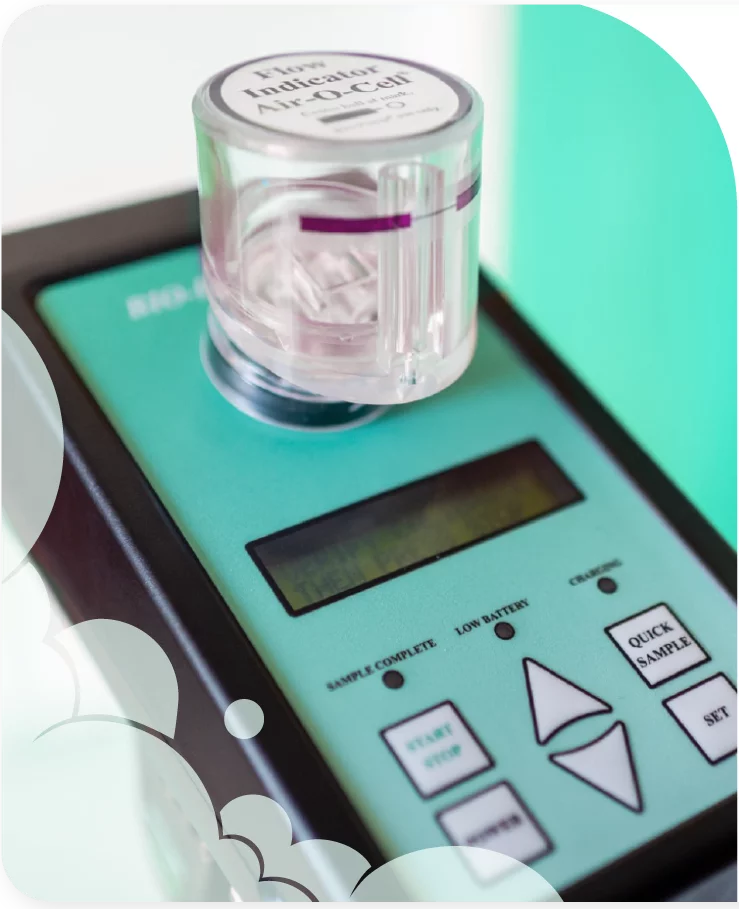
Request
A Free Estimate


